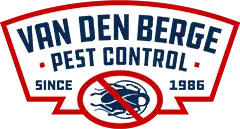
Contents
Pest infestations can be prevented with regular quarterly pest control measures. By scheduling routine inspections and treatments, you not only safeguard your property but also protect your health and well-being. Discover the key benefits of prioritizing proactive pest management and how it can make a significant difference in maintaining a pest-free environment.
Key Takeaways
- Early detection of pest activity is possible through regular inspections.
- Customized treatments for specific pests are more effective.
- Quarterly inspections save money in the long run.
- Peace of mind is achieved with consistent pest control measures.
- Eco-friendly pest management is promoted through regular checks.
Importance of Regular Pest Control
Regular pest control is important in maintaining a healthy and pest-free environment in residential and commercial spaces. Pest prevention is a key aspect of overall property maintenance, requiring a systematic approach to address potential pest infestations proactively. Through regular maintenance, you can greatly reduce the risk of pests infiltrating your living or working areas.
To effectively prevent pests, it’s essential to implement routine pest control measures. Regular maintenance involves inspecting your property for any signs of pest activity, sealing off entry points such as cracks and crevices, and eliminating potential food and water sources that may attract pests.
By consistently practicing these preventive measures, you create an environment that’s less hospitable to pests, reducing the likelihood of infestations.
Regular pest control safeguards your property and protects the health and well-being of its occupants. Pests can carry diseases and allergens that pose serious health risks to humans and pets. By prioritizing regular maintenance and pest prevention, you create a safer and more comfortable living or working environment for everyone.
Benefits of Quarterly Inspections
To further enhance your pest control strategy, consider the benefits of conducting quarterly inspections on your property. Regular inspections play an essential role in pest monitoring and prevention. By implementing quarterly inspections, you can stay ahead of potential pest infestations and guarantee the effectiveness of any seasonal treatments. Let’s explore the advantages of this proactive approach:
| Benefits of Quarterly Inspections | |
|---|---|
| 1. Early Detection | Regular inspections allow for the early identification of pest activity, enabling prompt intervention and preventing infestations from becoming established. |
| 2. Customized Treatments | Through quarterly inspections, pest control professionals can personalize treatments based on the specific pests present, maximizing the effectiveness of each application. |
| 3. Cost-Effective Solutions | Identifying pest issues early on can save you money in the long run by addressing problems before they escalate and require more extensive treatments. |
| 4. Peace of Mind | Knowing that your property undergoes regular inspections can provide peace of mind, ensuring a safe and pest-free environment for you and your family. |
| 5. Eco-Friendly Pest Management | Quarterly inspections contribute to eco-friendly pest management practices by focusing on prevention rather than reactive solutions, promoting a healthier ecosystem. |
Preventive Measures for Mice Control
To effectively control mice infestations, you should focus on implementing rodent exclusion methods to seal off entry points. Utilizing trapping and baiting techniques to capture existing mice is also crucial. Additionally, regularly inspecting your property for potential entryways that rodents may exploit is key.
These essential measures are vital in maintaining a pest-free environment and minimizing the risk of structural damage and health hazards associated with mice infestations. By proactively addressing these key points, you can greatly reduce the likelihood of encountering costly rodent issues in the future.
Rodent Exclusion Methods
Implementing effective rodent exclusion methods is essential for maintaining a pest-free environment and preventing mice infestations. When it comes to rodent control, utilizing exclusion techniques and rodent deterrents is vital.
Start by conducting a thorough inspection of your property to identify potential entry points for mice. Seal any cracks or gaps in walls, floors, and foundations using materials like steel wool or caulk. Additionally, habitat modification should be considered by removing sources of food, water, and shelter that attract rodents.
Implementing pest proofing techniques such as installing door sweeps, screens on windows, and ensuring proper ventilation can help keep mice at bay. Remember, rodents can squeeze through surprisingly small openings, so attention to detail is key.
Trapping and Baiting
For a comprehensive approach to mice control, efficient trapping, and baiting methods play a vital role in preventing infestations. When it comes to mice, employing strategic baiting strategies and trapping techniques can greatly reduce their populations. Pest monitoring is essential to identify areas with high activity, allowing for targeted interventions. Baiting strategies involve placing baits in locations frequented by mice, using food that entices them while containing toxins that eliminate them. Trapping techniques, on the other hand, involve setting up traps strategically to capture mice alive or kill them instantly. Exclusion methods should also be considered to prevent mice from entering buildings in the first place. This could include sealing off entry points like gaps in walls, doors, or windows. By combining these methods, you can create a strong defense against mice infestations, ensuring a safe and comfortable environment in your living or working spaces.
| Baiting Strategies | Trapping Techniques | Pest Monitoring | Exclusion Methods |
|---|---|---|---|
| Strategic placement of enticing baits containing toxins | Setting traps in high-activity areas | Regular checks for signs of mice | Sealing off entry points to prevent access |
Inspecting for Entryways
Examining entryways for potential openings is an essential step in effectively preventing mice infestations in indoor environments.
When evaluating entryways, consider the following pest-proofing tips:
Entryway Evaluation: Conduct a thorough inspection of all entry points, including doors, windows, vents, and utility openings. Look for any gaps or cracks that mice could use to gain access to your home.
Barrier Installation: Install door sweeps on exterior doors and screens on windows to create barriers that deter mice from entering. Seal any openings around pipes or wires with steel wool or caulk to block potential entry points.
Entry Point Sealing: Seal off any identified entry points using durable materials like metal flashing or concrete. Focus on areas where different materials meet, as these junctions may create gaps that mice can exploit.
Effective Treatment for Infestations
To effectively address infestations, focus on implementing proven prevention methods and promptly scheduling pest control treatments.
Utilize a combination of strategies customized to the specific pest species infesting your property for best results.
Ensuring a proactive approach to pest management can greatly reduce the risk of widespread infestations.
Infestation Prevention Methods
Implementing thorough infestation prevention methods is crucial for effectively treating infestations and maintaining a pest-free environment. To achieve this, consider the following strategies:
Regular Inspections: Conduct routine checks of your property to identify any signs of pest activity. Look for droppings, chewed wires, or nests in secluded areas.
Sealing Entry Points: Seal off cracks, gaps, and openings in walls, doors, and windows to prevent pests from entering your property. Pay special attention to areas where pipes and cables enter the building.
Proper Waste Management: Dispose of garbage regularly in sealed containers and ensure proper recycling practices. Keep outdoor areas clean and free of debris where pests might find shelter.
Timely Pest Control Treatments
For effective treatment of infestations, it’s imperative to adhere to a structured schedule of quarterly pest control measures. Timely pest control treatments play an important role in preventing pest infestations from spiraling out of control. By following a regimen of seasonal treatments, you can effectively manage and eradicate pests before they become a nuisance.
Pest prevention starts with understanding the lifecycle and habits of common pests in your area. By identifying potential entry points and breeding grounds, you can proactively address vulnerabilities in your property. Implementing timely pest control treatments ensures that you interrupt the pests’ reproductive cycles, reducing their numbers significantly.
Seasonal treatments are designed to target specific pests that are prevalent during certain times of the year. For instance, spring treatments may focus on preventing ant and termite invasions, while fall treatments could address rodents seeking shelter from the cold.
Long-term Cost Savings
By prioritizing quarterly pest control measures, you can achieve significant long-term cost savings for your property maintenance budget. Implementing proactive pest management strategies helps prevent infestations and contributes to financial benefits over time.
Early Detection and Prevention: Regular pest control inspections allow for early detection of any potential pest issues. By addressing problems at their onset, you can prevent widespread infestations that may require costly treatments.
Reduced Repair Costs: Pest infestations can cause damage to your property, leading to expensive repair bills. By investing in pest prevention measures, you can avoid structural damage caused by pests like termites or rodents.
Increased Property Value: Regular pest control treatments contribute to maintaining the overall condition of your property. A well-maintained property free of pest issues is more attractive to tenants or potential buyers, potentially increasing its market value.
Health and Safety Considerations
Routine pest control measures are vital for ensuring the health and safety of occupants in your property. By implementing regular pest management strategies, you protect your surroundings from potential infestations and contribute to public health and safety. Pest prevention plays a significant role in maintaining a clean and secure environment, reducing the risk of diseases and contamination associated with pests.
When considering pest control, it is important to be mindful of the environmental impact of the methods used. Opting for eco-friendly pest management approaches can help minimize harm to the ecosystem while effectively controlling pests. Balancing effective pest control with environmental responsibility is key to promoting a healthy living environment for both humans and wildlife.
| Health & Safety Considerations | |||
|---|---|---|---|
| Environmental Impact | Pest Management | Public Health | Pest Prevention |
| Minimize harm to ecosystem | Implement strategies | Enhance wellbeing | Prevent infestations |
Prioritizing quarterly pest control measures safeguards the well-being of those within your property and contributes to a larger societal benefit by promoting public health and responsible pest management practices. By staying proactive and implementing these measures consistently, you create a safe and healthy environment for all.
Wrap-Up
Prioritizing quarterly pest control measures is like investing in a protective shield for your property. Just as armor shields a warrior in battle, regular inspections and treatments shield your home from potential pest threats.
By staying vigilant and proactive, you can create a fortress of protection against unwanted invaders, ensuring a safe and secure environment for you and your loved ones.
So, arm yourself with quarterly pest control measures and fortify your living space against pest intrusions.
Recent Posts
Why Are Wasp Exterminator Services Priced Differently?
When you consider hiring a wasp exterminator, you might notice varying prices that can leave
10 Tips for Affordable Wasp Extermination Costs
When dealing with wasp infestations, costs can quickly add up if you’re not careful. To
Detailed Wasp Exterminator Service Cost Insights
When it comes to wasp exterminator, understanding the costs involved is essential for effective budgeting.
